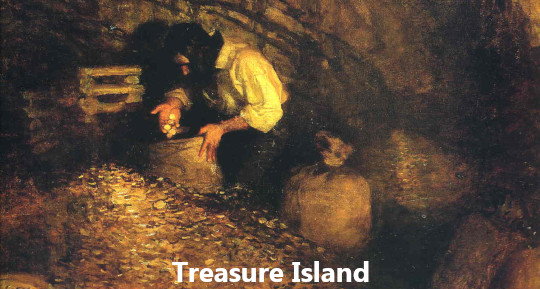Henry David Thoreau? Robert Chambers? Apocryphal?

Question for Quote Investigator: A centimillionaire who is fixated on the wealth and extravagances of a billionaire may feel comparatively poor. Yet, a different mindset would allow almost anyone to feel wealthy. The transcendentalist philosopher Henry David Thoreau suggested that one could feel rich if one’s pleasures were inexpensive. Would you please help me to find a citation?
Reply from Quote Investigator: On March 11, 1856 Henry David Thoreau wrote in his personal journal that friends were encouraging him to travel around the world, but he was not enthusiastic:1
When it is proposed to me to go abroad, rub off some rust, and better my condition in a worldly sense, I fear lest my life would lose some of its homeliness. If these fields, and streams, and woods, the phenomena of nature here, and the simple occupations of the inhabitants should cease to interest and inspire me, no culture or wealth would atone for the loss.
Thoreau did not want his simple quotidian pleasures to be reduced. Boldface added to excerpts by QI:
I do not wish my native soil to become exhausted and run out through neglect. Only that traveling is good which reveals to me the value of home and enables me to enjoy it better. That man is the richest whose pleasures are the cheapest.
Below are additional selected citations in chronological order.
In 1847 a set of essays by Robert Chambers was published in Edinburgh, Scotland. Chambers stated that the pleasures obtained via reading were inexpensive. His viewpoint was similar to the guidance offered by the adage under examination:2
A representative or ideal enjoyment to the very same purport may be obtained from books, and of these it may emphatically be said that, of all kinds of property, they are the lowest in cost. Reading, in fact, is nowadays almost as free as air.
It would thus appear that all the best pleasures are the cheapest. Nature seems to tell us that we have only to restrain our wishes to what is good, and pure, and elevating, in order to be satisfied without cost.
In 1848 a collection of friends in Thornton, England published a periodical called “The Album”, and a piece credited to W.P. contained another thematic precursor:3
It is a striking proof of the benevolence of the Deity that our noblest and most exquisite pleasures are the cheapest and most accessible. Observe the lovely hues and inexhaustible variety of the clouds, the curtains of the same gorgeous canopy …
In 1856 Henry David Thoreau penned the adage in his notebook as mentioned previously.
In 1890 the passage containing the quotation was reprinted in “Thoreau’s Thoughts: Selections from the Writings of Henry David Thoreau”. The accompanying label said the time was “Early Spring”.4
In 1899 the adage appeared in a compilation titled “Edge-Tools of Speech” selected by Maturin M. Ballou:5
That man is the richest whose pleasures are the cheapest.—Thoreau.
In 1938 the adage appeared in the eleventh edition of “Bartlett’s Familiar Quotations”. The accompanying citation pointed to Thoreau’s Journal and specified the date of March 11, 1856.6
In 1957 the saying appeared in “The Book of Unusual Quotations” compiled by Rudolf Flesch:7
That man is richest whose pleasures are the cheapest.
Henry David Thoreau
In conclusion, Henry David Thoreau deserves credit for the statement he wrote in his journal in 1856.
Image Notes: Public domain illustration of “Jim and the Treasure” created by N.C. Wyeth for the 1911 edition of Robert Louis Stevenson’s “Treasure Island”.
Acknowledgement: Great thanks to David Taylor whose inquiry led QI to formulate this question and perform this exploration.
Update History: On March 24, 2025 the format of the bibliographical notes was updated.
- 1881, Early Spring in Massachusetts: From the Journal of Henry D. Thoreau, Date: March 11, 1856, Start Page 114, Quote Page 115, Houghton Mifflin and Company, Boston, Massachusetts. (Google Books Full View) link ↩︎
- 1847, Select Writing of Robert Chambers, Volume 3, Essays Moral and Economic, Things Which Are To Be Got for Little or Nothing, Start Page 118, Quote Page 122, W. & R. Chambers, Edinburgh, Scotland. (Google Books Full View) link ↩︎
- 1849, The Album, Or, Original, Miscellaneous Contributions of Friends, Number 4: July 1848, On Taste and Genius by W. P., Volume 1, Start Page 61, Quote Page 62, Printed and Published by A. C. Adams, Thornton, Leicestershire, England. (Google Books Full View) link ↩︎
- 1890, Thoreau’s Thoughts: Selections from the Writings of Henry David Thoreau, Edited by H. G. O. Blake, Quote Page 117, Houghton, Mifflin and Company, Boston, Massachusetts. (Google Books Full View) link ↩︎
- 1899, Edge-Tools of Speech, Selected and Arranged by Maturin M. Ballou, Topic: Riches, Quote Page 429, Column 1, Houghton Mifflin and Company, Boston, Massachusetts. (Google Books Full View) link ↩︎
- 1938, Familiar Quotations by John Bartlett, Eleventh Edition, Edited by Christopher Morley and Louella D. Everett, Entry: Henry David Thoreau (1817-1862), Quote Page 589a, Little, Brown and Company, Boston, Massachusetts. (Verified with scans) ↩︎
- 1957, The Book of Unusual Quotations, Compiled by Rudolf Flesch, Topic: Pleasure, Quote Page 214, Column 1, Harper & Brothers, New York. (Verified with scans) ↩︎